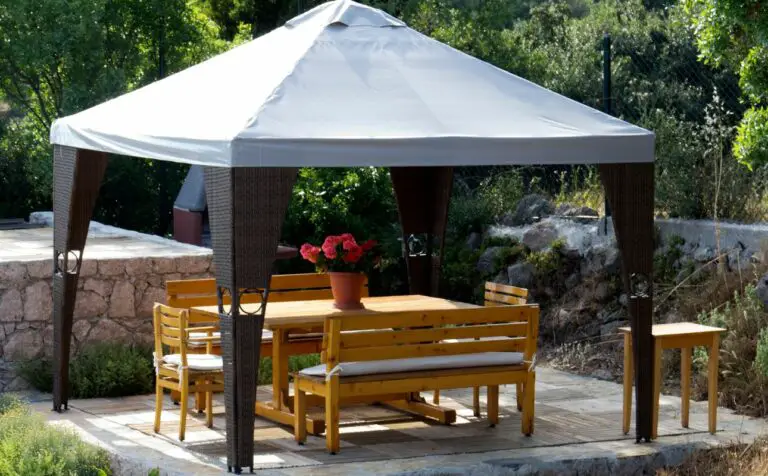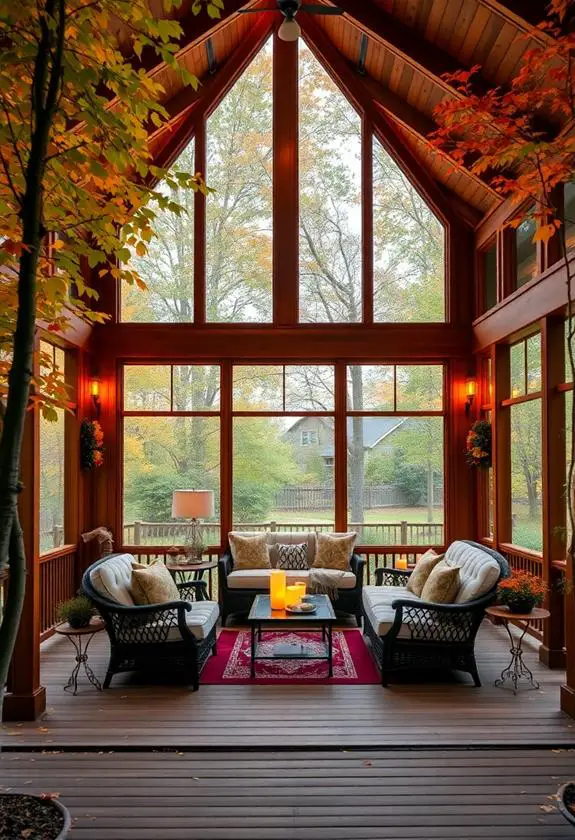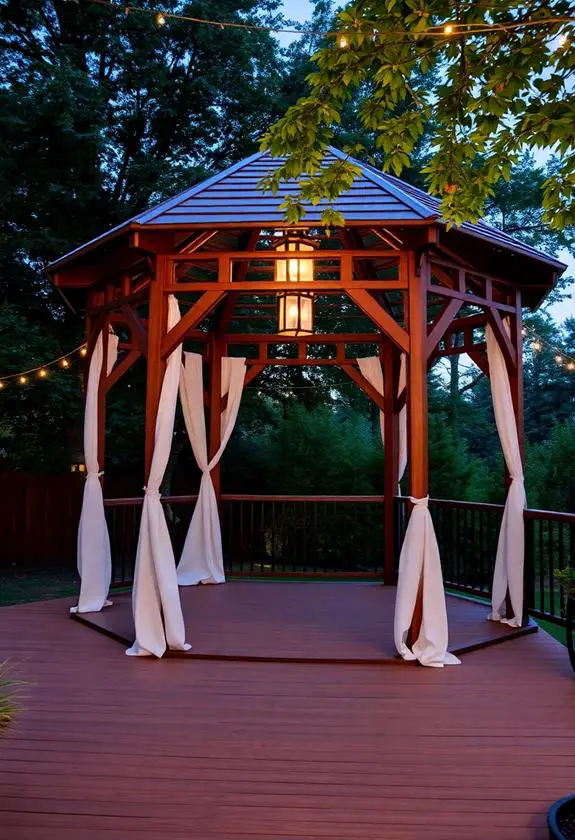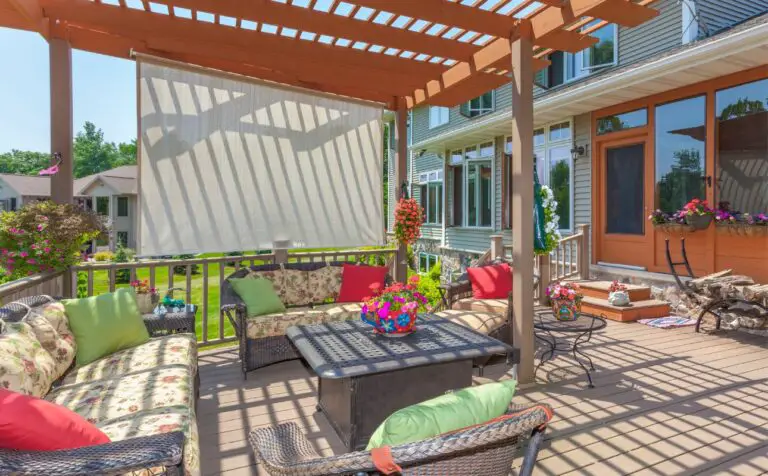A carport is a covered structure used to provide shelter for vehicles, typically located adjacent to a home or building.
While carports are often open-air structures with a roof and support beams, many homeowners wonder if it is possible to enclose them. Enclosing a carport can provide several benefits, such as increased security, protection from the elements, and additional storage space.
In this article, we will explore the possibilities of enclosing your carport and discuss various options that may be available to you.
Enclosing your carport can provide added protection for your vehicle and belongings while also increasing the functionality of the space. With enclosed walls and doors, you can create a secure space that offers privacy and protection from weather conditions like wind, rain, and snow.
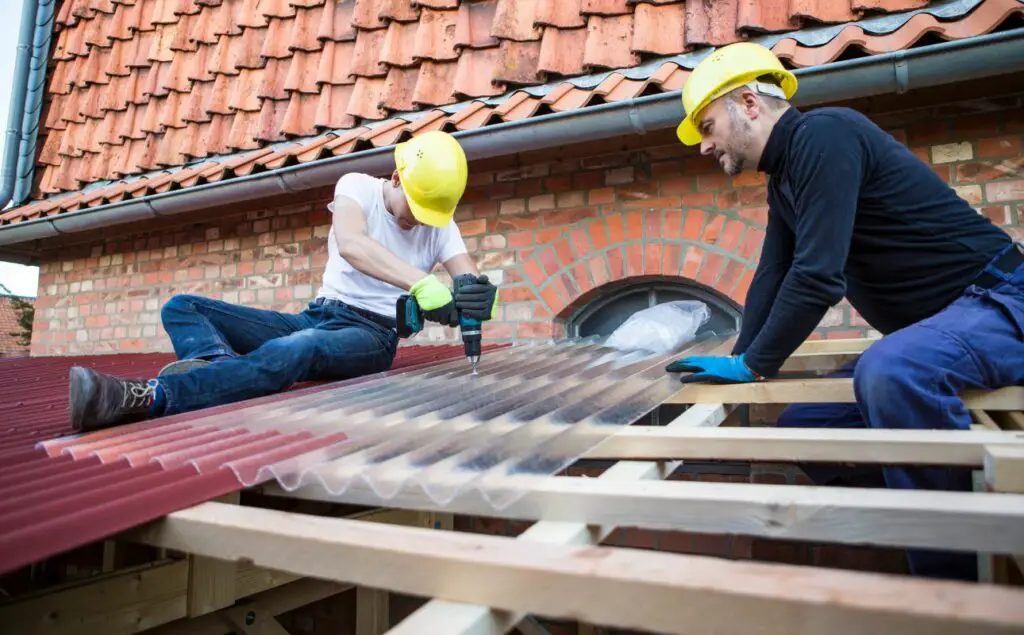
Reasons to Enclose Your Carport
There are several compelling reasons to consider enclosing a structure typically used for vehicle shelter. Covered parking can provide protection from the elements, keeping your car safe from rain, snow, and hail.
Converting a carport into an enclosed space can offer even greater benefits. Enclosing your carport creates additional living space that can be used for multiple purposes, such as a home office or workout area. It increases the overall value of your property by adding square footage and improving aesthetic appeal.
Fully enclosing your carport offers better security for both you and your vehicle by protecting against theft and vandalism.
Fully Enclosing Your Carport
The ability to modify a structure originally designed for open-air coverage by adding walls and doors can provide added functionality and versatility, allowing the space to be utilized in a variety of ways.
Fully enclosing your carport offers several benefits, including increased security against theft, protection from harsh weather conditions, and privacy concerns. Before enclosing your carport, you should check with local zoning restrictions to ensure that your project is within the legal limits.
Moreover, adding walls to your carport can significantly increase its value as it transforms an open-air structure into an enclosed space that can serve multiple purposes such as a home office or extra living area.
With careful planning and attention to detail, fully enclosing your carport can be a worthwhile investment that enhances the overall functionality of your property.
Adding Walls to Your Carport
Not only does enclosing a carport offer protection from the elements, but it also adds an extra layer of security for your vehicle or belongings. Carport insulation can be installed to regulate temperature and reduce noise levels.
When considering this type of renovation project, it is important to factor in the cost estimate for materials and labor. The price may vary depending on the size and complexity of the design.
Once complete, you can use your enclosed carport as a workshop, or storage area, or even convert it into an additional living space. Before moving forward with adding walls to your carport, it is crucial to ensure that your local building codes permit such modifications.
Adding a Roof to Your Carport
To fully protect your vehicle or belongings from harsh weather conditions, adding a sturdy roof to your open-air structure can be an effective solution that not only enhances its functionality but also adds value to your property.
Before adding a roof to your carport, it is important to obtain the necessary building permit from your local authorities and ensure that the structure is sound enough to support the added weight of the roofing materials.
There are various roofing materials available in the market, such as metal, asphalt shingles, polycarbonate panels, and more. Each material has its own advantages and disadvantages in terms of cost, durability, maintenance requirements, and aesthetic appeal.
Other Considerations
When considering enclosing a carport, it is important to assess the cost analysis of these additional features. Proper ventilation prevents moisture buildup that can lead to rotting or mold growth while also ensuring sufficient airflow to prevent overheating.
Adequate drainage is necessary to prevent water damage and flooding during heavy rainfalls. Lighting fixtures should be strategically placed for maximum visibility and safety at night. It is important to consider the intended purpose of the enclosed carport when selecting these features as they may vary depending on whether it will be used primarily for storage or as an additional living space.
Do I need a permit to enclose an existing carport?
If you are considering enclosing an existing carport, it’s important to determine whether you need a permit before proceeding with the project. Building permits are typically required for any significant modifications or additions to a structure, and enclosing a carport can fall under this category. Let’s explore the factors that determine whether a permit is necessary.
- Local Building Codes
The first step is to consult your local building codes. Building codes vary by jurisdiction, so it’s crucial to understand the regulations specific to your area. These codes outline the requirements for construction projects, including permits. They typically address structural integrity, electrical wiring, insulation, and other safety considerations.
- Size and Scope of the Project
The size and scope of the carport enclosure project can influence permit requirements. Different jurisdictions have different thresholds for when a permit is necessary. For instance, some areas may require a permit for enclosing any carport, while others only mandate permits for larger additions or structural changes.
- Impact on Property and Neighbors
Permitting requirements may also take into account the potential impact of the enclosure on your property and neighboring structures. If the enclosed carport significantly alters the appearance or structure of your property, a permit might be necessary to ensure compliance with aesthetic and zoning regulations.
- Professional Assistance
When in doubt, it’s advisable to seek professional assistance. Consulting with an architect, contractor, or local building department can provide valuable insights into the permitting process and specific requirements for your carport enclosure project.
The Bottom Line
Encasing a carport can provide numerous benefits for homeowners, including added security, protection from the elements, and a potential increase in property value.
Fully enclosing a carport can help to transform it into a functional and versatile space that can be used for various purposes such as storage or an additional living area.
It is important to carefully consider all aspects before embarking on this project. Adding walls and a roof may require permits and professional installation to ensure structural integrity.
Deciding whether or not to enclose your carport requires careful thought and planning to create a safe and functional space that meets your specific needs.
FAQ
Can I convert my enclosed carport into a living space?
You can convert an enclosed carport into a living space. However, this typically requires obtaining the necessary permits, meeting building code requirements, and addressing structural, insulation, and utility considerations to ensure the space is suitable for habitation.
Will enclosing my carport affect my property value?
Enclosing your carport can potentially increase your property value, as it adds usable square footage and versatility to your home. However, the impact on property value can vary depending on factors such as the quality of the conversion, the local real estate market, and buyer preferences in your area.
Do I need a permit to enclose my carport?
The need for a permit to enclose your carport depends on local building codes and regulations. In many jurisdictions, enclosing a carport is considered a significant modification and may require a permit. It is advisable to check with your local building department to determine the specific permit requirements for your area.
